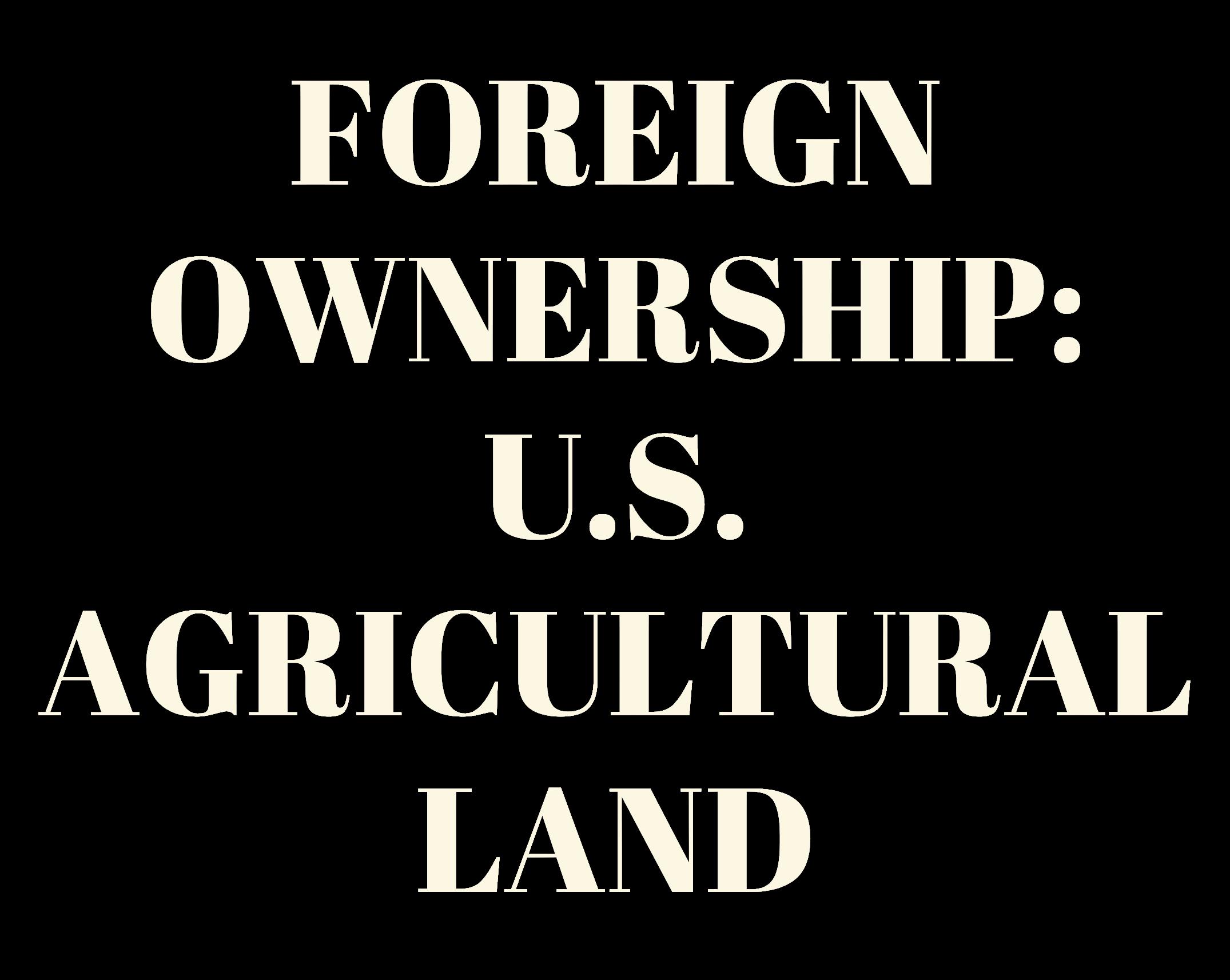
4 minute read
Foreign Ownership: U.S. Agricultural Land.

Ana Paula Montanha, Editor-in-Chief
Foreign Ownership: U.S. Agricultural Land
Advertisement
We need to restrict foreign investment and ownership in the U.S. food and agriculture sector and ascertain reporting requirements for the U.S. Department of Agriculture (USDA) to disclose foreign ownership of U.S. agricultural lands.
Existing Federal Requirements: current federal law imposes no restrictions on the amount of private U.S. agricultural land that can be foreign-owned. Federal law, however, requires foreign persons and entities to disclose information related to foreign investment and ownership of U.S. agricultural land to USDA.
Existing State Requirements: Some states and localities have instituted restrictions on foreign ownership of farmland. However, no U.S. state has created an absolute prohibition on foreign ownership. Some states limit or have proposed prohibiting certain foreign persons and entities from acquiring or owning an interest in agricultural land within their state, and several states have different disclosure requirements. USDA has identified 339 counties in Iowa, Kansas, Pennsylvania, and Wisconsin as having the strictest prohibitions on foreign ownership of agricultural land and other nonagricultural real estates. There is no single uniform approach under state laws to addressing foreign ownership.
Six states already have laws banning foreign ownership of farmland. Those states are Hawaii, Iowa, Minnesota, Mississippi, North Dakota, and Oklahoma State. Virginia could be the next to ban foreign adversaries from buying farmland in the commonwealth. But Chinese investors can circumvent Chinese land ownership restrictions by buying large U.S. corporations that own agricultural land.
Land grabbing, the practice of purchasing large tracts of land in another country, is a global phenomenon that can have negative impacts on local land rights and agricultural production, potentially jeopardizing food security. While the media has covered land grabbing in low- and middle-income countries extensively, this phenomenon also occurs in the United States. In fact, according to the U.S. Department of Agriculture, foreign ownership of U.S. agricultural land doubled from 2009 to 2019, leading policymakers to become increasingly concerned about foreign control of the U.S. food supply.
Foreign entities purchase U.S. farmland for various reasons, including food production, wind farming, carbon offsets, and speculative investments. In 2019, foreign investors own at least 35.2 million acres of U.S. agricultural land, with the largest share held by Canadian investors (29 percent), followed by the Netherlands, Italy, Germany, and the United Kingdom. Although Chinese companies' land purchases have been the focus of increased scrutiny, investors from China own only a tiny fraction of U.S. farmland.
While these purchases do not represent a substantial enough portion of U.S. food production to threaten national food security, they do present localized concerns in the places where they occur. For example, in water-scarce regions like the Southwest, external use of freshwater resources can affect water availability for local farms and communities. Additionally, the 2013 purchase of Smithfield Foods by the Chinese firm Shuanghui escalated concerns about Chinese intervention in U.S. food systems, leading to increased scrutiny of acquisitions by Chinese investors.
Regulations regarding foreign ownership of U.S. farmland are scant, with only the Agricultural Foreign Investment Disclosure Act (AFIDA) of 1978 providing any federal oversight. While the USDA requires foreign entities to report farmland transactions, the data relies on self-reporting, and the USDA needs to check it for completeness and accuracy, leaving the public with a complete picture of foreign purchases of U.S. farmland. On the state level, regulations vary, with some states forbidding any foreign landholdings and others putting caps on the amount foreign land entities can own.
The more significant concern for long-term U.S. food security is why up-and-coming U.S. farmers cannot buy the land they need. According to the National Young Farmers Coalition, young and aspiring farmers say access to land is their most significant barrier to starting a successful farm business.
Overview of Selected State Law Related to Foreign Ownership of U.S. Agricultural Land











